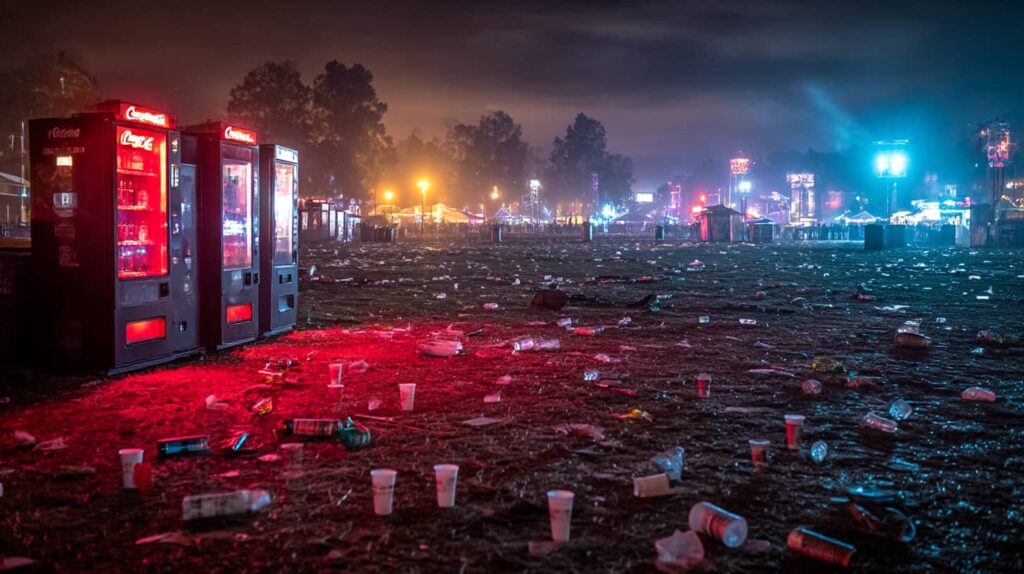A glance at the clock shows 3:17. The last guest left the festival site an hour ago. The clean-up is underway. But one number on the display has everyone marvelling: 10,247 cocktails served. Without a single bartender.
How is that possible? Welcome to the future of event catering.
The impossible scenario
Just imagine: A two-day festival with 15,000 visitors. Traditionally, you would need at least twelve bartenders working in shifts. Costs: 8,000 euros just for staff. Risks: sickness absence, varying quality, theft, exhaustion after 14 hours.
Now the alternative: four fully automatic cocktail stations. Investment: 1,200 euros leasing for the entire weekend. Staff: Two service staff who only serve and collect.
The result exceeds all expectations.
The night of records
Saturday, 10 pm. The main stage explodes with pyrotechnics. 8,000 people cheer at the same time. And get thirsty. Very thirsty.
There are immediate queues at conventional bars. 15 minutes for a mojito. Frustrated guests give up and buy beer. Lost revenue: gigantic.
Everything is different at the cocktail stations. Four seconds per drink. No queues. Perfect quality, even at 2.30 in the morning. The machines know no fatigue.
The 24-hour marathon
What happens when human limits are exceeded? Bartenders become unfocussed after ten hours. Portions fluctuate. Mistakes pile up. Guests complain about watery cocktails.
The machines ran for 48 hours. Cocktail number 1 tasted identical to cocktail number 10,000. Mathematical precision replaces human weakness.
One organiser commented: "At midnight, the difference was dramatic. Our bartenders were exhausted, the machines kept running perfectly."
The figures speak for themselves
The final result after two days:
10,247 cocktails served Average price: 11 euros Total sales: 112,717 euros Material and electricity costs: 23,000 euros Staff costs: 1,600 euros (service only) Net profit: 88,117 euros
By comparison, traditional service would have yielded a net profit of 65,000 euros - with twice the stress and three times the risk.
The guests' reactions are surprising
Fear: Guests reject "soulless" automation. Reality: The opposite happened. The perfect, lightning-fast cocktails delighted everyone.
"Finally a mojito that always tastes the same," commented one festival-goer. "And no queue!"
The reviews on social media exploded. Hundreds of posts about the "most innovative bar at the festival". Free advertising worth tens of thousands of euros.
The turning point for events
This festival marks a turning point. While competitors are still struggling with staffing problems, this event is setting new standards. The vending machines are already being booked for the next event.
Other organisers are taking notice. Enquiries are piling up. The market recognises that automation is not the future - it is the present.
Lessons learnt at 3 o'clock in the morning
When the balance sheet is drawn up at 3 a.m., the findings are clear:
Machines work around the clock to constant perfection Staff costs fall by 80 per cent Turnover increases thanks to faster service Guests are more satisfied with the quality
The new normal
10,000 drinks without a bartender. What seemed impossible yesterday is reality today. Tomorrow it will be standard.
The question is no longer whether events will rely on automation. It is: Who will take the next step - and who will be left behind?
3.17am. 10,247 perfect cocktails. Zero bartenders. Mission accomplished.
